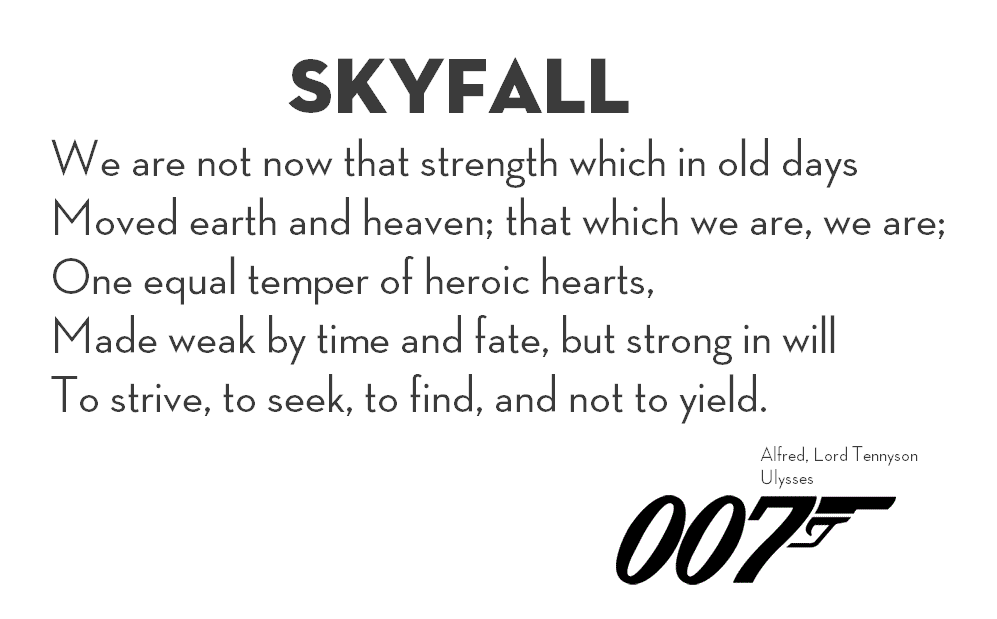
There were no uniform laws at the time to deal with people fairly. Here, it alludes to the weighing of decisions mentally. To ‘mete and dole’ literally implied to weigh and measure out in small quantities. The term ‘mete and dole’ pertains to groceries, and is used here with derogatory connotations to relegate regal affairs to trivial domesticity and underline the insignificance of the same. Penelope was ‘fifty’ at the time, and did not match his passion for adventure and quest for exploration. It serves to reflect on the crude state of affairs in the king’s life and the sterility that prevails. The phrase “barren crags” points to the island of Ithaca in the kingdom of Ulysses: a limestone ridge seventeen miles long and four miles broad at its widest, singular for its ruggedness and barrenness, and considered unhealthy for cultivation. Like a fireplace, it no longer carries the flame in it, only the ashes of a once fiery lifestyle. The metaphor is employed to comment on his own condition.

Having returned to his kingdom Ithaca after an action-packed journey and eventful past, he finds little pleasure in a ‘still hearth’. It was more written with the feeling of his loss upon me than many poems in In Memoriam.” A Poetic Breakdown

Tennyson states, “There is more about myself in Ulysses, which was written under the sense of loss and that all had gone by, but that still life must be fought out to the end. Hence, he utilizes such a myth to mirror his anxieties at the moment. The idea of his protagonist transcending an age in such a circumstance was symbolic of him defying his own circumstances. As per the Victorian critic Linda Hughes, the “emotional gulf between the state of his domestic affairs and the loss of his special friendship informs the reading of Ulysses -particularly its treatment of domesticity.” His urge to overcome the emotions and manage his huge household posed as a challenge to him. Furthermore, Tennyson wrote Ulysses after the death of his Cambridge friend, the poet Arthur Henry Hallam, who was extremely dear to him. Though they come together in the text of the poem, they do not recognize each other. Robson writes that the poem brings in together the two conflicting sides of Tennyson - the “responsible social being” and the “melancholic poet”. However, unlike Homer’s Ulysses, who was a lover of public affairs, critics consider “Ulisse” from Dante’s _Inferno,_ to be the source for Tennyson’s protagonist An evil counselor who lusts for adventure at the expense of his family and his duties in Ithaca.” Autobiographical Significance At the end of Tennyson’s poem, the protagonist contemplates on embarking on this previously mentioned journey. Subsequently, he would undertake a new, enigmatic voyage, and would later die a peaceful, “unwar-like” death that comes vaguely “from the sea”. In the eleventh book of T_he Odyssey_, the prophet Tiresias predicts that Ulysses will go back to Ithaca after a tedious expedition. The poem was published in Tennyson’s second volume of Poems (1842). At times, it comes across as a soliloquy and sometimes it appears as a public address. It does not really become clear as to who the auditor is.

However, certain critics maintain that it is a soliloquy as it does not adhere to all the constraints of the dramatic monologue. Some scholars consider Tennyson’s Ulysses to be a dramatic monologue. Therefore, the laboring language reflects the stagnation that had set in the life of Ulysses. It slows down the pace and movement of the poem. The poem’s persistent iambic pentameter has intervallic spondees. Ulysses, by Alfred Lord Tennyson, was penned in blank verse.


 0 kommentar(er)
0 kommentar(er)
